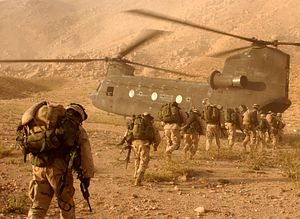After Hamid Karzai’s intransigence set back momentum towards the U.S.-Afghan Bilateral Security Agreement (BSA) that would allow an American troop presence in Afghanistan beyond the general NATO coalition withdrawal in 2014, reports emerged that the deal may finally be imminent. U.S. special representative to Afghanistan, James Dobbins, told the U.S. Senate that he is confident Afghanistan will sign the deal on schedule, despite Hamid Karzai’s recalcitrance.
The BSA had wide support from Afghanistan’s Loya Jirga and from both parties in the United States. Additionally, U.S. Secretary of Defense Chuck Hagel stopped by in a surprise visit to Kabul over the weekend, on his way to Islamabad, to lobby for the BSA as well — he notably chose not to meet with President Hamid Karzai.
For Karzai’s government, the BSA isn’t the only source of a security guarantee after 2014. Iran and India have also made inroads with Afghanistan regarding its post-2014 security situation. In India, Hamid Karzai raised eyebrows with his push for deeper defense ties. According to the Hindustan Times, “India is treading a cautious path even as Kabul has again raised the pitch for deeper military ties — that includes supply of tanks and artillery guns — citing domestic constraints and geo-political fallouts.” This support is in addition to India’s $2 billion assistance program in Afghanistan’s reconstruction.
In a move that further raised the ire of the United States, Karzai swung closer to Iran with the Afghan-Iran pact last week. The move was particularly brash considering Karzai’s public repudiation of the BSA with the United States, raising concerns that Iran and Afghanistan may align following the NATO withdrawal. Reuters quotes a Karzai spokesman as saying that the “pact will be for long-term political, security, economic and cultural cooperation, regional peace and security.”
James Dobbins, on Wednesday, clarified that he believed that the Iran-Afghan pact would do little to derail the United States’ security trajectory in Afghanistan, particularly the BSA. “At this point I would not attach a lot of importance to it,” said Dobbins.
Iran, however, made no secret of its displeasure over a continued U.S. presence in Afghanistan — long perceived to entrench a de facto state of U.S. encirclement around the Islamic republic. Hassan Rouhani told Iran’s state-run news agency IRNA that “[Iran is] concerned about tension arising out of the presence of foreign forces in the region, believing that all foreign forces should get out of the region and the task of guaranteeing Afghan security should be entrusted to the country’s people.”
Amidst this regional show of interest in Afghan security, Pakistan’s Prime Minister Nawaz Sharif personally encouraged Karzai to conclude the BSA with the United States. China added its voice to the chorus, encouraging a U.S.-Afghan agreement as well. A U.S. security presence in Afghanistan beyond 2014 would be a net positive in for China, providing security for its infrastructure projects and investment in the country.

































